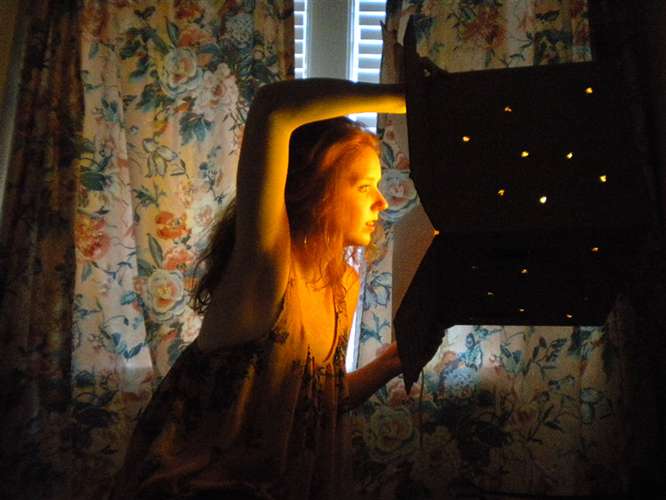
Guest post by Alliance staffer Scott Larner
 When I was fourteen, my grandmother bought me a collection of 50 leather bound books from The Easton Press, called Masterpieces of Science Fiction. This left little hope that I wouldn’t spend the next few decades of my life daydreaming of outer space and aliens. I was charmed by imaginative tales in Ray Bradbury’s The Martian Chronicles, enthralled with the raucous adventures of Gully Foyle in Alfred Bester’s The Stars My Destination, and captivated by the Galaxy-spanning political intrigue in Frank Herbert’s Dune.
When I was fourteen, my grandmother bought me a collection of 50 leather bound books from The Easton Press, called Masterpieces of Science Fiction. This left little hope that I wouldn’t spend the next few decades of my life daydreaming of outer space and aliens. I was charmed by imaginative tales in Ray Bradbury’s The Martian Chronicles, enthralled with the raucous adventures of Gully Foyle in Alfred Bester’s The Stars My Destination, and captivated by the Galaxy-spanning political intrigue in Frank Herbert’s Dune.
The monsters and violence brought me in and kept me reading, but as I got older and started thinking more critically about what I read, I realized there had been more at work in those books. Bradbury had been exploring race and politics, examining the difficulties and challenges that arise when two foreign cultures collide. Bester had adapted Alexandre Dumas’ The Count of Monte Cristo to tell a story about personal responsibility in a world beset by threats of war, terror, and the invasion of privacy; and Herbert’s sprawling epic is a meditation on the complexities of environmental issues and oil politics.
It’s not a surprise that Theodore Sturgeon (author of Sturgeon’s Law, which states that 90% of everything is “of low quality.”) was a science-fiction writer, and that his Law was designed to defend the genre from critics who wanted to use the worst examples of the discipline to condemn it. Science Fiction has always struggled for respect in the literary community. But in its author’s willingness to extrapolate, imagine and invent, Science Fiction can isolate issues, digging deeply into specific and authentic human emotion that rivals the best “real world” fiction.
If you haven’t read Bester, Bradbury and Herbert – do so! And if you have a story splashing around in your head that would be a little bit better with aliens, monsters or spaceships, put them in. Fantasy doesn’t have to mean “untrue.” Imaginary doesn’t have to mean insubstantial.
There’s an infinite amount of territory to explore out there, and I’m excited to see where you’re going to take me!
Other recommendations in Science Fiction:
The Dispossessed by Ursula K. Le Guin
Dawn by Octavia E. Butler
The Cyberiad by Stanislaw Lem
Do Androids Dream of Electric Sheep? by Philip K. Dick
***
Apply to the Scholastic Art & Writing Awards Science Fiction/Fantasy Category!
This category includes writing that uses supernatural elements or invented technologies. Entries must be 600 to 3,000 words. Do not base characters or plots on already published works (books, movies, comics, etc.). As with all categories, jurors look for originality, technical skill, and the emergence of a personal vision. Students can submit their work to the 2013 Scholastic Awards beginning September 17, 2012. To learn how to submit, visit: http://www.artandwriting.org/Awards/HowTo
